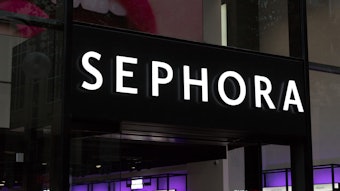
“Reinvigorating the representative experience is the key to making New Avon the best social selling company and beauty brand in North America,” said New Avon CEO J. Scott White in June.
Indeed, social selling is increasingly critical to beauty brands seeking to innovate multilevel marketing, especially because it is a perfect retail format for highly social millennials.
“While the importance of developing relationships is universal across age groups, young people in particular are proving to be a huge driver of the social selling industry” said Jackie Nickel, CMO of Amway North America. “The relationship-driven industry appeals to their generation, particularly when they are contacted on social media by a friend.”
"When a seller can effectively communicate the premium quality of the products, particularly through using the products themselves, they will always be seen as more trustworthy.”
But how does social selling work?
Recently, Amway released its "State of Social Selling Survey," which was conducted by Wakefield. The results provide some interesting insights into how social selling can work, or not work, in the United States.
The research found that:
- 60% of Americans have been contacted by a social seller, and one third of those have actually made a purchase.
- 85% of those who have purchased from social sellers are repeat customers
- 87% believe that it is important for a social seller to use the product themselves and demonstrate product knowledge through photos and videos on social media; 60% of consumers do not trust a social seller who does not display this knowledge
- 64% have felt “peer pressured” into buying something from a social seller, while 53% feel that social sellers are more aggressive than face-to-face salespeople
- 83% of consumers who purchased from social sellers established a relationship with the seller prior to making a purchase
- 6 weeks is the duration after which social sellers should stop contacting customers that do not make a second purchase, according to survey respondents
“You can only sell a product that you are passionate about,” said Jim Ayres, managing director for Amway North America. “Amway Independent Business Owners are often frequent users and walking testimonials of the products they sell. When a seller can effectively communicate the premium quality of the products, particularly through using the products themselves, they will always be seen as more trustworthy.”
“Having a strategy and conducting yourself authentically is crucial for successful social selling," said says Rajneesh Chopra, vice president of sales for Amway North America. "Cultivate relationships.Key is knowing when to reach out and when to follow up."










